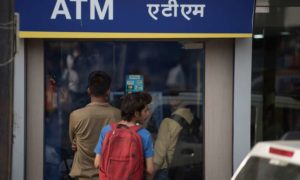Senior citizen tax benefits: Each year during the Budget, taxpayers eagerly await the government’s announcements on tax relief, particularly for senior citizens. With limited sources of income, senior citizens often rely on pensions, which act as a crucial financial safety net for them.
Read More:- Budget 2025 Expectations: Rs 10 Lakh Tax Rebate, Rs 2.5 Lakh Mutual Fund LTCG Exemption
Experts believe that Finance Minister Nirmala Sitharaman may finally adjust the tax slabs under the old tax regime as well in the upcoming Budget, expected to be presented on February 1. The government has not made any significant changes to the Old Tax Regime ever since the New Tax Regime was announced in the Union Budget 2020-21. In the Budget 2023-24, the government, however, increased the basic income tax exemption limit to Rs 3 lakh for senior citizens (60 years and above) and Rs 5 lakh for super senior citizens (80 years and above).
According to tax expert Apoorva Goyal, Partner, Sahni & Co., “The government is expected to maintain its focus on the new tax regime in this Budget, continuing its aim of bringing more taxpayers under its ambit. However, for a change, the old tax regime might see some tweaks, particularly in its initial slab, to provide relief for senior citizens. Raising the basic tax exemption limit to Rs 5 lakh for senior citizens and Rs 7 lakh for super senior citizens is possible.”
Read more:- ITR Filing 2024-25: This is the last date to file belated, revised tax returns for FY24
This move could offer significant relief to senior taxpayers, who can benefit from the various deductions available under the old tax regime, she added.
Currently, in the old tax regime, the basic exemption limit for senior citizens is Rs 3 lakh, and for super senior citizens, it is Rs 5 lakh.
Here are the tax slabs for senior citizens (aged 60 years and above) under the Old Tax Regime:
For senior citizens (aged 60 years to 80 years):
Up to Rs 3,00,000: No Tax
Rs 3,00,001 to Rs 5,00,000: 5%
Rs 5,00,001 to Rs 10,00,000: 20%
Above Rs 10,00,000: 30%
For super senior citizens (aged 80 years and above):
Up to Rs 5,00,000: No Tax
Rs 5,00,001 to Rs 10,00,000: 20%
Above Rs 10,00,000: 30%
Tax professional Arun Tyagi, Malhotra Associates, said that the widespread shift to the new tax regime, now embraced by nearly 70% of taxpayers, has led to reduced collections in the government’s small savings schemes. “Since senior citizens are key investors in these schemes, the government might consider providing relief to senior taxpayers under the old tax regime by raising the basic tax exemption limit to Rs 5 lakh. This would effectively result in zero tax liability for senior citizens earning up to Rs 10 lakh annually.”
Here are the old tax regime tax slabs for senior and super senior citizens, assuming the basic exemption limit is increased to Rs 5 lakh for senior citizens (aged 60-79 years) and Rs 7 lakh for super senior citizens (aged 80 years and above):
For senior citizens (60-79 years):
Income up to Rs 5,00,000: No tax (basic exemption limit).
Income from Rs 5,00,001 to Rs 10,00,000: Tax at 20%.
Income above Rs 10,00,000: Tax at 30%.
For super senior citizens (80 years and above):
Income up to Rs 7,00,000: No tax (basic exemption limit).
Income from Rs 7,00,001 to Rs 10,00,000: Tax at 20%.
Income above Rs 10,00,000: Tax at 30%.
Let’s understand through an example how a senior citizen, 60 years of age, can pay zero tax on an annual income of up to Rs 10 lakh.
In this scenario, we assume the individual is utilising various deduction benefits, including Section 80C, Section 80CCD(1B), Section 80D, Section 80TTB, Section 80DDB, the Standard Deduction, and the family pension standard deduction. These deductions have been chosen because they are common and widely availed by most senior citizens.
Read More:- Income Tax Calendar 2025: Check Key Due Dates For January
Based on the provided deductions, here’s how the tax liability will be calculated for a senior citizen earning Rs 10 lakh per annum if the basic exemption limit is raised to Rs 5 lakh under the old tax regime:
Income and deductions:
Gross income: Rs 10,00,000
Basic exemption limit: Rs 5,00,000
Deductions:
Section 80C: Rs 1,50,000
Section 80CCD(1B) (NPS contribution): Rs 50,000
Section 80D (Health insurance premium): Rs 50,000
Standard deduction: Rs 50,000
Section 80TTB (Interest income deduction): Rs 50,000
Family pension standard deduction: Rs 15,000
Section 80DDB (Medical expenses for critical illness): Rs 1,00,000
Total deductions: Rs 1,50,000 + Rs 50,000 + Rs 50,000 + Rs 50,000 + Rs 50,000 + Rs 15,000 + Rs 1,00,000 = Rs 5,65,000
Also Read : PM-JAY for senior citizens: How to register for free health insurance
Taxable income calculation:
Gross income: Rs 10,00,000
Exemption limit: Rs 5,00,000
Deductions: Rs 5,65,000
Net taxable income: Rs 10,00,000 – Rs 5,00,000 (exemption) – Rs 5,65,000 (deductions) = Rs 0
Tax liability:
Since the net taxable income is Rs 0, the senior citizen will not pay any income tax under the old tax regime.





































